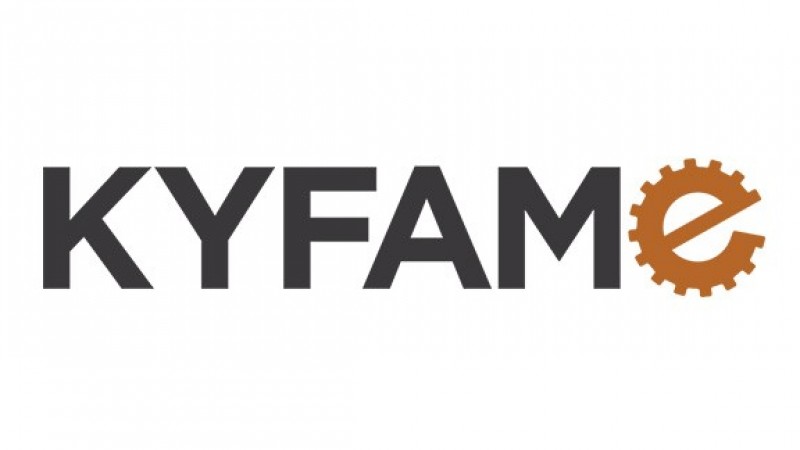| |
 MSSC NEWS MSSC NEWS |
|
LABOR DAY SPECIAL EDITION
|
New NSF Project to deepen MSSC CPT Engagement with FL Secondary Schools

FLATE, the Florida Advanced Technological Education Center of Excellence, was recently awarded a National Science Foundation project, "Altering Manufacturing Careers Awareness and Amplifying Career Path Participation" in partnership with MSSC. One of the main goals of this effort is strengthen Florida's MSSC CPT High School and Post Secondary Articulation Pathway to the A.S. Engineering Technology degree program. The project was funded because the MSSC-CPT is a valuable pathway for high school students in Florida to articulate a remarkable 15 credit hours into the A.S. Engineering Technology degree program in any one of 19 community colleges in the Florida College System.
The nationally recognized CPT certification has been approved by the Florida Department of Education for articulation into the State wide Engineering Technology two year A.S. program. This means that anyone that holds a currently valid CPT certification upon acceptance in the program, automatically receives 15 credit hours toward the 60 credit hour Engineering Technology degree. FLATE and MSSC will focus project resources in Florida high schools that are new to MSSC. The aim is to provide teacher professional development, establish new CPT testing Centers in these high schools as well as to improve the high school student's success with the assessments. This project will increase the number of Florida high school and post secondary faculty CPT credentialed instructors in Florida.
A key element of success for this project is the professional development of faculty. More teachers will be prepared to proficiently present MSSC supported skills. This will directly produce more students who are prepared to begin an A.S. degree program that supports manufacturing in the state. MSSC will provide substantial resources that are coupled with FLATE NSF-ATE resources to accomplish the project goals while developing a strategy for successful implementation of MSSC in Florida high schools.
NSF, FLATE and MSSC hope this project will provide a national model for secondary students to receive 15 credit hours at community colleges for the full MSSC CPT.
|
|
MSSC signs agreement with NC3 to grow advanced certification programs
 In July 2016, MSSC Chairman and CEO, Leo Reddy signed a collaborative agreement with the
National Coalition of Certification Centers (
NC3), a growing coalition of company facilitated instructor certification programs in more advanced production skills.
In July 2016, MSSC Chairman and CEO, Leo Reddy signed a collaborative agreement with the
National Coalition of Certification Centers (
NC3), a growing coalition of company facilitated instructor certification programs in more advanced production skills.
NC3 was established to address the need for strong industry partnerships with educational institutions in order to develop, implement and sustain industry-recognized portable certifications that have strong validation and assessment standards.They are "stacked" above the MSSC's entry-level certifications for individual students and workers. Like MSSC, NC3 is an industry-led non-profit working actively with community colleges.
|
|
MSSC and NADCA form a cooperative relationship

Our CPT Certificants will be excited to know that MSSC has formed a cooperative relationship with the
North American Die Casting Association (NADCA)
that will open job opportunities in this critically important sector of manufacturing. The industry is seeking CPT Certificants and can offering career pathways in several technical fields, including process, maintenance, and quality.
To learn more about die-casting,
Watch this video
! Interested in applying? Contact Melisa Ryzner, CMP, Education & Meetings Manager at 847-808-3161 or
[email protected]
for more information!
|
NOTE
: Labor Day is traditionally the time to take stock of job trends. The much awaited U.S. Bureau of Labor Statistics Sept. 2 News Release showed that total manufacturing jobs have held steady at about 12.3 million between Aug. 2015 and June 2016. Still better, as described in the first item below, there is a slight increase in the number of manufacturing jobs due to reshoring by American-owned firms and foreign direct investment (FDI).
|
More mfg. jobs arriving than leaving U.S.: skilled workforce a factor

Based on cumulative data from 2007 through 2015 on both reshoring and foreign direct investment (FDI), a recent Reshoring Initiative report concludes that "for the second year in a row the number of manufacturing jobs returning to the U.S. remains on par or slightly higher than the number of jobs leaving."
This is a welcome reversal of the previous trend where, from 2000-2007, the U.S. lost, net, 220,000 manufacturing jobs per year. Of special interest to the MSSC Community: a skilled workforce topped the list of reasons companies gave for locating in the U.S., together with government incentives, ecosystem/localization, and proximity to customers. "We publish this data annually to show companies that sourcing domestically is an increasing trend in the U.S," states Harry Moser, President of the Reshoring Initiative.
|
WSJ reports a large number of manufacturing jobs are going unfulfilled
 According to a recent Wall Street Journal article, "
Amid growing anxiety about the disappearance of factory jobs, thousands of them are going unfilled across the U.S."
The number of open manufacturing jobs has been rising since 2009, and this year stands at the highest level in 15 years, according to Labor Department data.
|
Megatrends support MSSC focus on keeping pace with technological change

The 2016 Global Manufacturing Competitiveness Index (GMCI) released by Deloitte Global reports that "manufacturing earnings and exports are stimulating economic prosperity causing nations to increase their focus on developing advanced manufacturing capabilities by investing in high-tech infrastructure and education."
One result is that "advanced technologies have become more essential to company- and country-level competitiveness." This global trend supports MSSC's long-term commitment to staying at the cutting edge of advanced manufacturing process technologies in order to "Certify the Industrial Athlete of the Future." This is evidenced in the 2015 edition of the MSSC Production Standards, which added newly emerging advanced technologies such as 3-D Printing, Advanced Materials, Internet of Things, Mechatronics, Mobile Internet, Nano-manufacturing, and Next Generation Robotics.
|
Why millennials should be in manufacturing
 According to a recent article in the FF Journal, the magazine for metal fabricating and forming technologies, "I
n order for the manufacturing industry to sustain and prosper, a younger generation of skilled labor is needed."
Millennials are the largest demographic group in United States history with over 80 million strong. Their sheer numbers and distinct set of skills and values will help the manufacturing industry grow.
Some millennials may imagine manufacturing as an unglamorous line of work. While career opportunities are fruitful, some Gen-Yers are not aware of what the modern manufacturing industry has become.
Millennials have the talent and work ethic to embrace the ever-changing manufacturing landscape, while understanding high-level technologies and multitasking between processes.
By 2025, there will be two million unfilled manufacturing jobs as predicted by the Manufacturing Institute and Deloitte Consulting. We need urgently to build the talented manufacturing workforce of the 21st century.
Please click here for the full FF Journal article.
|
 POLICY NEWS POLICY NEWS |
|
DOL and DoEd release joint guidance on WIOA
 According to a recent National Skills Coalition (NSC) report, "The U.S. Departments of Education and Labor just released
joint guidance
to help states match data for Workforce Innovation and Opportunity Act (WIOA) reporting."
This is a victory for NSC's
Workforce Data Quality Campaign, which has advocated for such joint guidance since 2014. It comes at a critical time for states as they strive to meet new WIOA performance reporting requirements and continue making progress on longitudinal data systems. Furthermore, NSC agrees that this is a step in the right direction and testifies to the value of WIOA, not just for DoL, but for the all federal workforce training programs.
|
 NEWS FROM THE MSSC COMMUNITY NEWS FROM THE MSSC COMMUNITY |
|
|
GE Appliances KYFAMe Program highlights CPT at Doss High School in KY
 On July 19, GE Appliances invited over 80 principals from Advanced Technology Centers that support Kentucky's high schools CTE manufacturing programs for an industry briefing on employer/education partnership programs. Inspired by The
Community Playbook of Greater Louisville Manufacturing Workforce Development" released in April, the afternoon session featured a plant tour, an industry panel focused on best practices in employer/education partnerships in manufacturing, as well as breakout sessions on various programs that prepare students for manufacturing careers, including the MSSC CPT program at Doss High School in Louisville.
LeeSa Page, MSSC Senior Advisor, along with Debbie Anderson, Program Manager, and Marty Polio, Principal at Doss High School participated in informational/Q&A "speed sessions" to discuss the CPT high school program implementation. Doss High School is the first Kentucky high school to fully implement the CPT program within the Manufacturing Engineering Technology Technician career pathway since it was approved by the Kentucky Department of Education last spring.
|
New mfg. and tech degree at TBCC in OR creates custom, skilled workforce

According to the Headlight Herald, nine months ago, Tillamook Bay Community College (TBCC) in Oregon undertook a major redesign of its popular Industrial Maintenance Technology (IMT) program. The goal was to create a broader workforce training program that would increase value to students and local employers.
The MIT program is a two year Associate of Applied Science degree with five Career Pathways Certificates.
The foundation of the certificates is the
Certified Production Technician (CPT). This four-class pathway leads to a national certification offered by the
Manufacturing Skills Standards Council (MSSC), which is recognized in all 50 states and demonstrates competencies in Safety, Quality Control, Manufacturing Process and Production, and Maintenance Awareness. Earning a CPT provides an applicant with a powerful credential demonstrating a knowledge base of the workings in a mechanical facility.
|
|
|
|
|
|